When it comes to outdoor living, there’s an ongoing debate: yurts vs traditional tents. For generations, classic tents have been the go-to shelter for campers — lightweight, portable, and familiar. But in recent years, yurts have become an increasingly popular alternative, offering a unique blend of comfort, durability, and timeless style inspired by nomadic traditions.
Below, we’ll explore why yurts are capturing the hearts of modern campers, and how they compare to traditional tents when it comes to creating your perfect outdoor escape.
1️⃣ Spaciousness and Comfort
One of the biggest advantages of yurts is their generous space. Unlike low-profile dome tents that can feel cramped, yurts have a circular design with tall, sloping walls that offer full standing height throughout.
✔️ Room for beds, furniture, and even a stove
✔️ Airy, open feel like a portable cabin
✔️ Plenty of storage space for gear
If you want your camping setup to feel like a home-away-from-home, yurts offer comfort traditional tents struggle to match.
2️⃣ Durability and Weather Resistance
Yurts are designed to stand up to challenging conditions. Their tensioned wooden lattice and robust canvas covering create a strong, flexible structure:
✔️ Withstands wind and heavy rain better than many standard tents
✔️ Less risk of tears or leaks in adverse weather
✔️ Suitable for year-round use with the right setup
For those wanting a reliable, long-term base — a yurt is an investment in all-season comfort.
3️⃣ Sustainable and Natural Materials
Many campers today want gear that’s kind to the planet. Traditional tents often rely on synthetic fabrics and plastics, but yurts traditionally use natural materials like wood, canvas, and felt.
✔️ Smaller environmental footprint
✔️ Easily disassembled with minimal impact on surroundings
✔️ Long-lasting and reusable season after season
A yurt is a sustainable choice that aligns with conscious, eco-friendly camping.
4️⃣ Versatility for All Seasons
Traditional tents often have specific season ratings (summer only, 3-season, etc.). Yurts, by contrast, can be adapted for year-round use.
✔️ Add insulation for winter warmth
✔️ Ventilation options for summer airflow
✔️ Stove compatibility for cosy, heated camping
They’re perfect for those who want to embrace nature in every season without sacrificing comfort.
5️⃣ Unique Aesthetic Appeal
Yurts don’t just function well — they’re beautiful. With their iconic round shape, wooden frame, and central crown, yurts have a timeless, exotic look that blends beautifully with natural settings.
✔️ Evokes adventure and heritage
✔️ Creates a warm, inviting atmosphere
✔️ Ideal for glamping sites, retreats, and garden guest rooms
6️⃣ Community-Friendly Spaces
One of the joys of a yurt is how well it accommodates groups. Unlike small, separated tents, a yurt provides a shared, communal space:
✔️ Perfect for families, friends, or group retreats
✔️ Encourages socialising and shared experiences
✔️ Creates lasting memories around the fire or stove
If you love camping as a social experience, yurts make it even more special.
7️⃣ Surprisingly Simple Setup
Despite their size and sturdiness, yurts are surprisingly straightforward to set up:
✔️ Modular components that fit together logically
✔️ Quicker assembly than many expect
✔️ Once up, they stay standing securely for weeks or months
For semi-permanent sites or long-term stays, they’re an easier choice than constantly repitching small tents.
Final Thoughts: Why Choose a Yurt?
Yurts are more than just shelter — they’re an experience. They combine the practicality of durable, weather-resistant design with the beauty of traditional craftsmanship and the comfort of a real living space.
For modern campers seeking a sustainable, comfortable, and stylish alternative to traditional tents, yurts offer a compelling choice that connects us to nature — and each other — in a truly memorable way.
Interested in exploring more outdoor living ideas?
Check out our Boho Bell Tent Collection for other spacious, beautiful, and weather-ready options for your next adventure.


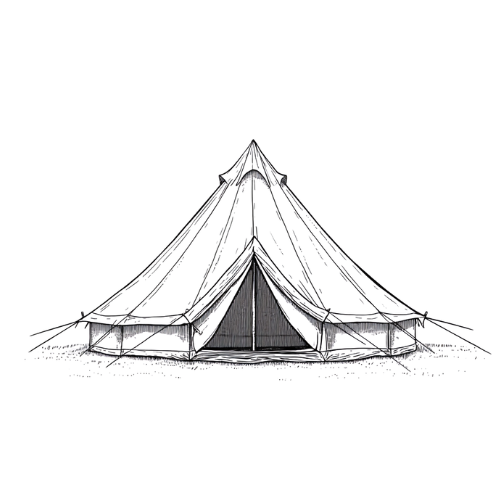 Canvas Bell Tents
Canvas Bell Tents Bell Tent Accessories
Bell Tent Accessories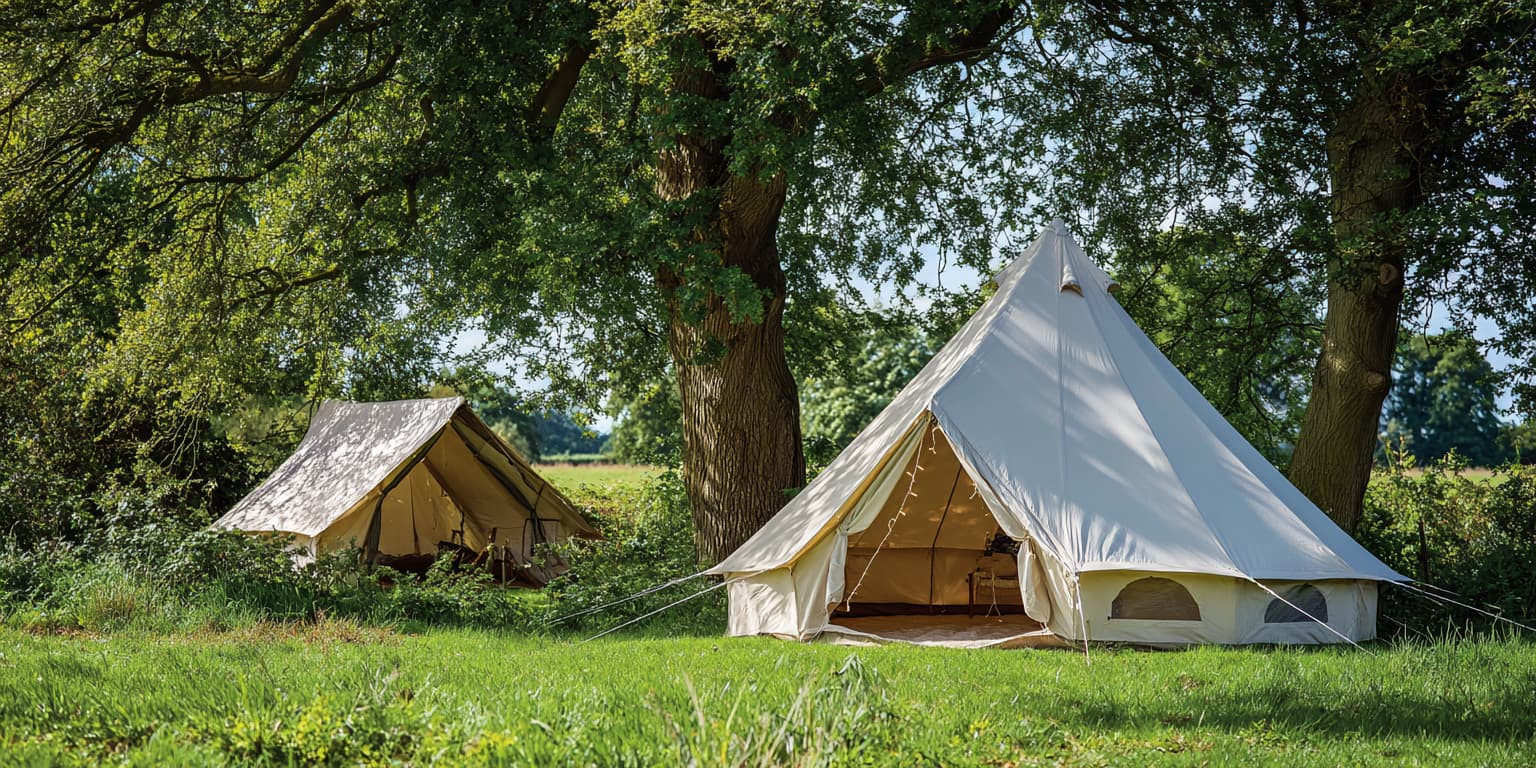
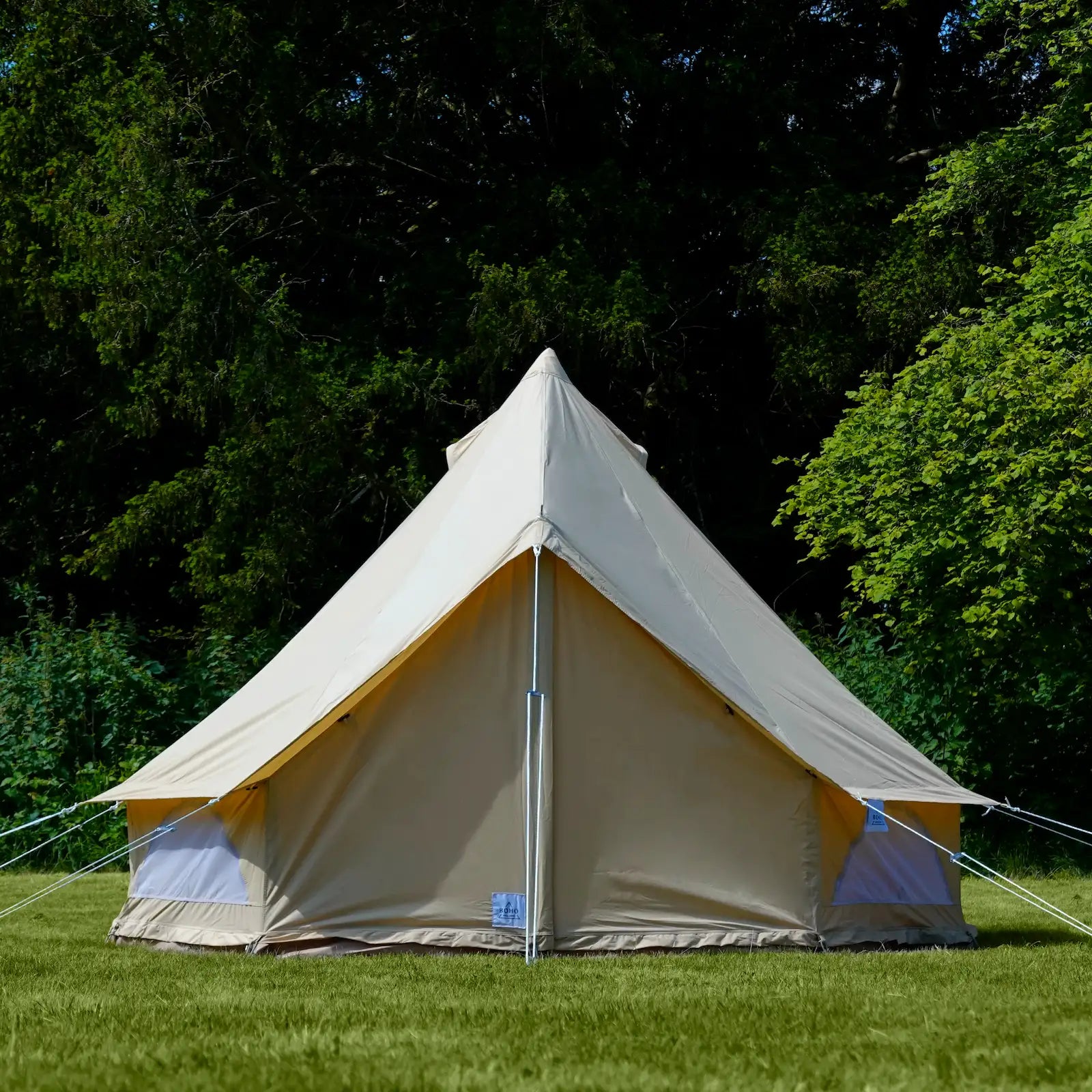
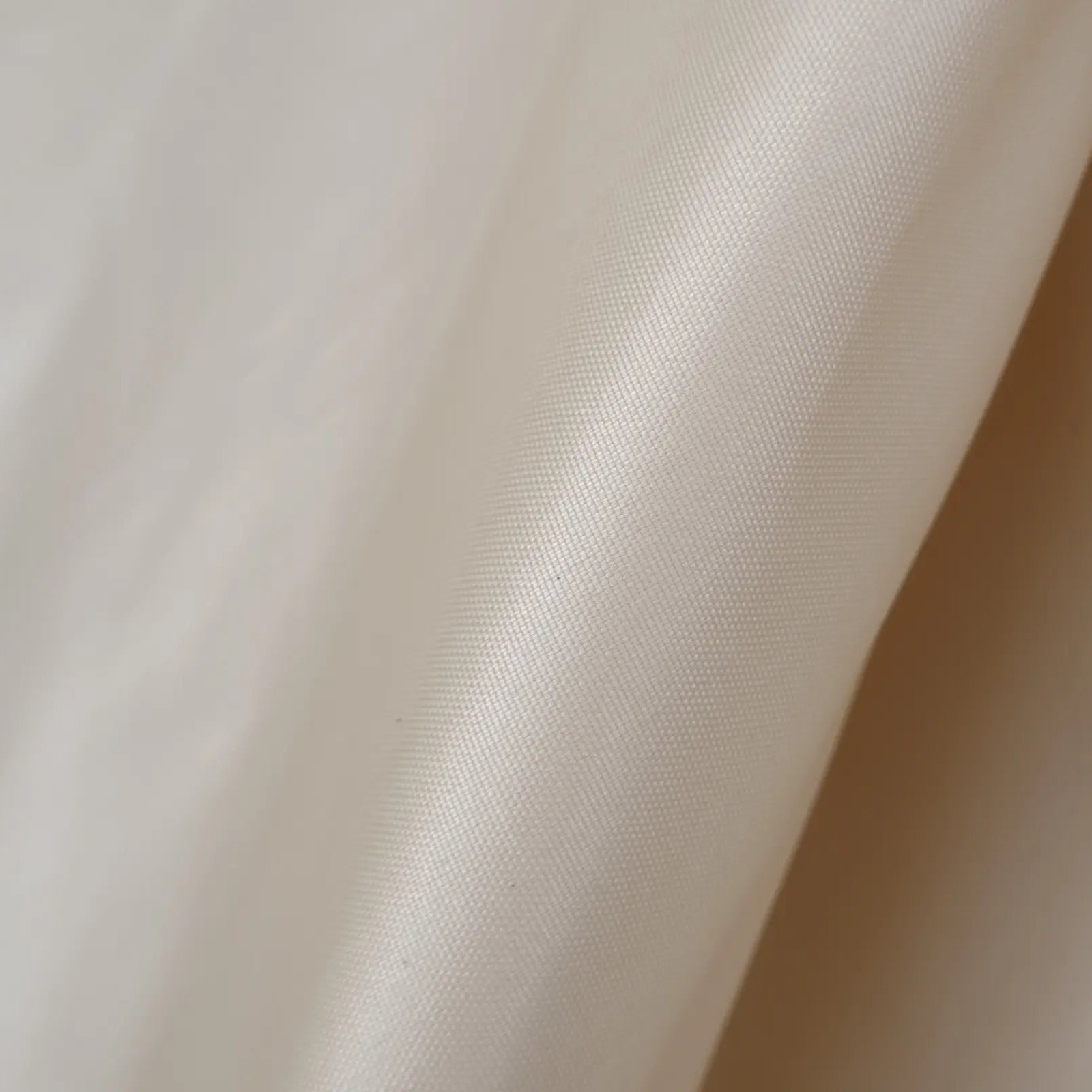
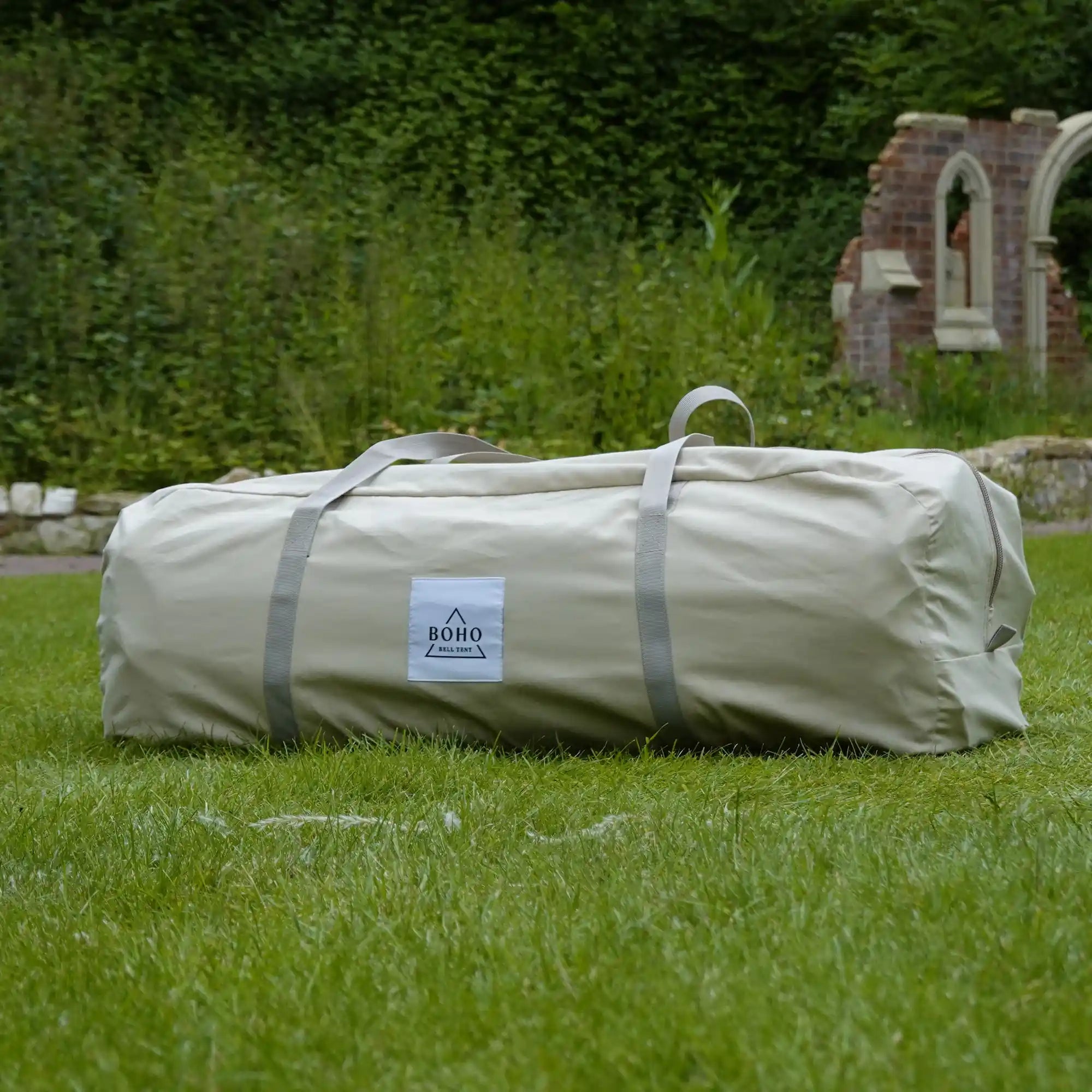

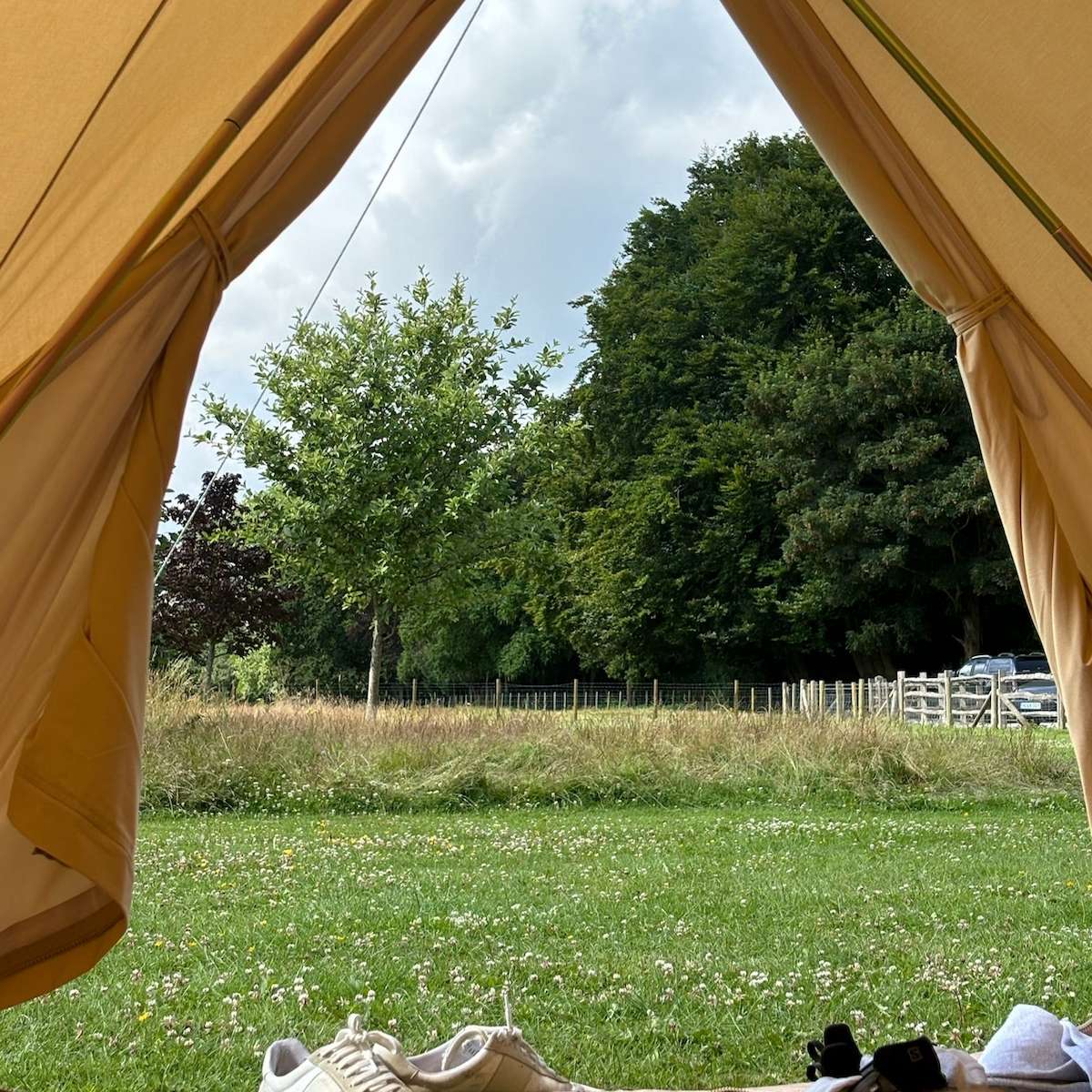
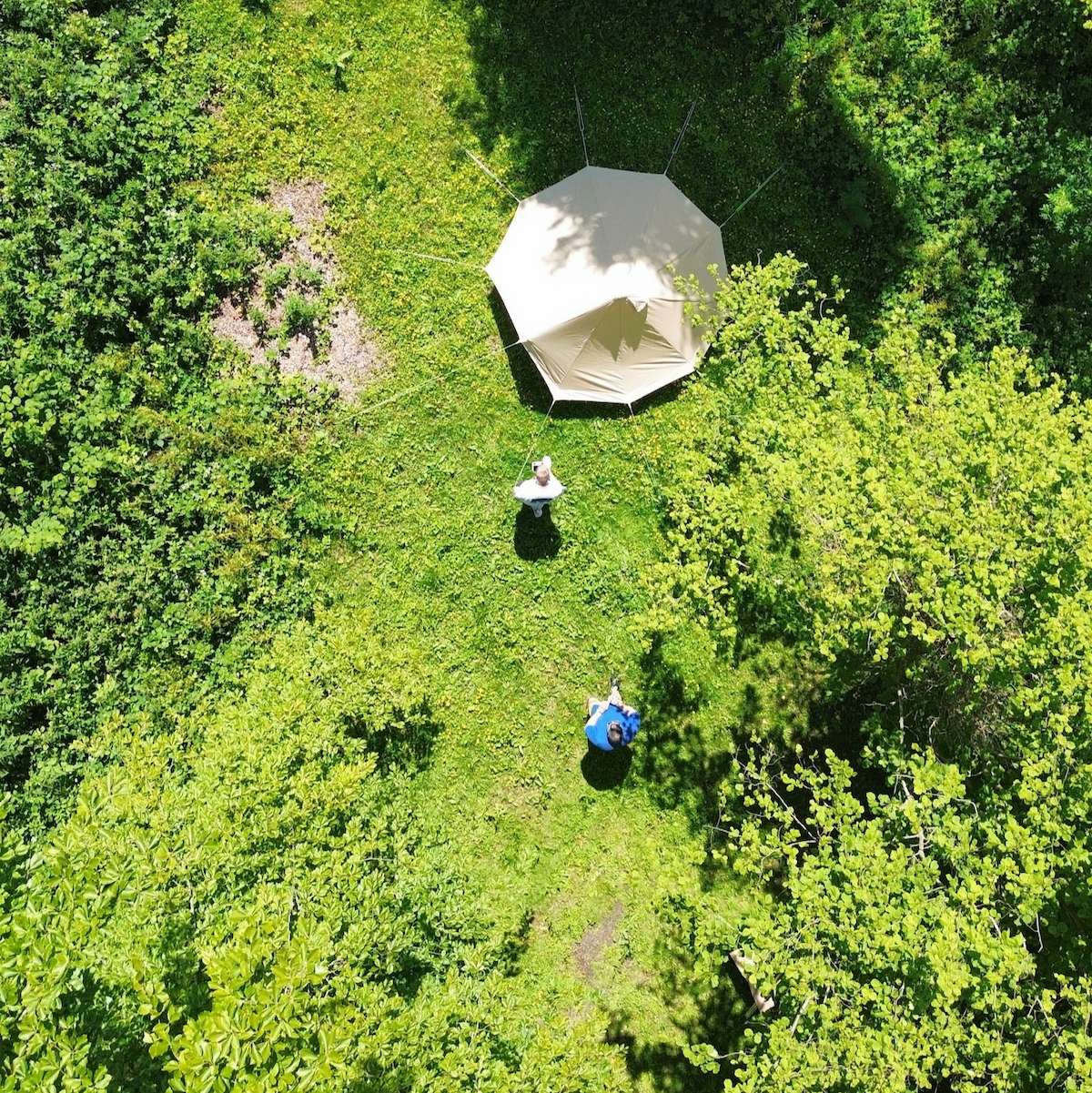


At Boho Bell Tent, we’ve helped hundreds of customers find the perfect setup for festivals, weddings, and off-grid escapes. So if you need any help at all, be sure to reach out!
Share:
Glamping In The Lake District: An Unforgettable Escape
Are Bell Tents Good For Winter?